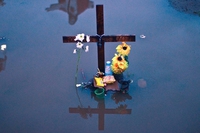
Beyond the bargain. What is fair trade fashion
Fair trade labels and certification There is no universal fair trade certification. One of the most widely known fair trade labels is the Fairtrade Foundation’s Fairtrade Mark, which certifies products such as bananas. The World Fair Trade Organization (WFTO’s) label, instead, identifies organisations rather than goods. While these two verifying bodies are internationally recognised, there are

